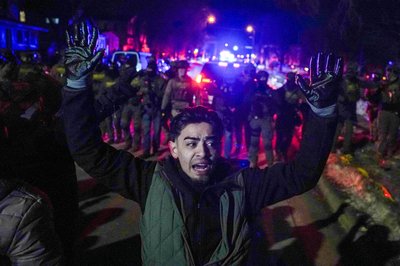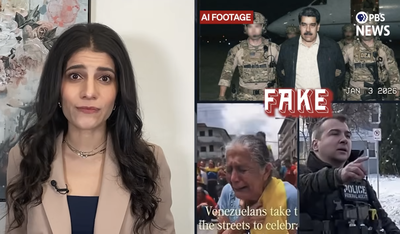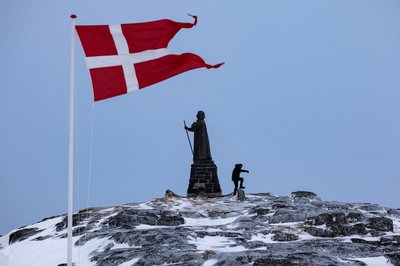NOTE: If you are short on time, watch the video and complete this See, Think, Wonder activity: What did you notice? What did the story make you think about? What would you want to learn more about?
SUMMARY
Target is reeling as sales have stalled and its stock price has plunged. The company faced backlash after a rollback of its DEI initiatives prompted a boycott that slowed store traffic nationwide, one of the factors that pushed CEO Brian Cornell to step down. Now, Target is scrambling to reset its image. Geoff Bennett discussed more with Pastor Jamal Bryant, who spearheaded the Target boycott.
View the transcript of the story.
News alternative: Check out recent segments from the NewsHour, and choose the story you’re most interested in watching. You can make a Google doc copy of discussion questions that work for any of the stories here.
key terms
Diversity, Equity and Inclusion (DEI) — A set of policies adopted by organizations like companies or governments that seek to address inequality and ensure people of all backgrounds can participate as citizens, employees or customers. The Trump administration has sought to punish companies and other organizations that have DEI policies on the argument that they cause discrimination instead of effectively addressing discrimination.
boycott — an organized refusal to buy a product or participate in a program with the goal of changing the behavior of a company, organization or government.
WARM-UP QUESTIONS
- Who is Pastor Jamal Bryant, and what is his background?
- What is the reason behind the boycott that Pastor Jamal Bryant is helping to lead?
- How much money does the Black community spend at Target per day, according to Bryant?
- Why is Bryant disappointed by the new leadership at Target?
- Which requests is Bryant hoping Target will accommodate?
ESSENTIAL QUESTIONS
- Do you think the boycott of Target will be effective in changing the policies of the company? Why or why not?
- What do you think Target could do to recover its lost business?
Media Literacy: If you were a journalist covering this topic, who would you want to interview to find out more about boycott, its history and its impact?
NEWS: THEN & NOW
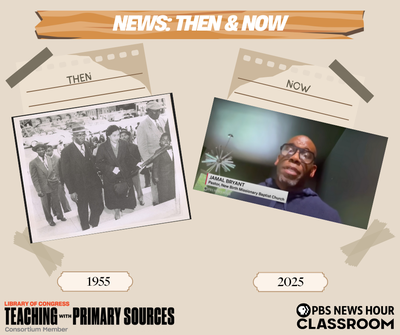
Then:
Many students know of Rosa Parks and her arrest for sitting at the front of the bus in Montgomery, Alabama, on Dec. 1, 1955. But fewer know the details of the bus boycott that Parks and other civil rights leaders organized following her arrest. Through the boycott, Parks and her fellow activists sought to use economic leverage to change the law — a large percentage of bus ridership in Montgomery was Black, and the boycott threatened the operating budget of the city's transportation system.
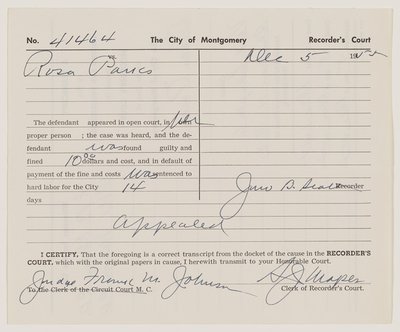
Transcript of Rosa Parks’s Trial, December 5, 1955. Document. Frank Johnson Papers, Manuscript Division, Library of Congress
The NAACP, Martin Luther King, Jr. and others helped organize the boycott. At the time, the state of Alabama had laws in place against organizing boycotts. As the Library of Congress explains, "On February 21, 1956, a Montgomery grand jury indicted Rosa Parks, Martin Luther King, Jr., E. D. Nixon, and eighty-six other bus boycott participants for violating the Alabama Anti-Boycott Act of 1921. King was the first to be brought to trial. He was convicted on March 22, but Judge Eugene Carter suspended his $500 fine pending appeal. The other cases were ultimately dismissed."
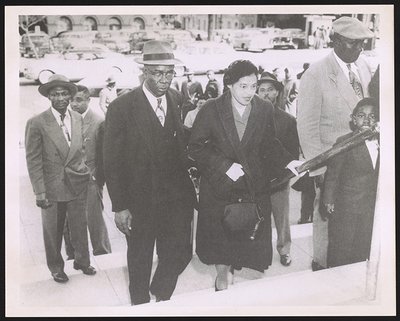
E. D. Nixon escorting Rosa Parks to the courthouse in Montgomery, Alabama, to attend the trial of Martin Luther King, Jr., March 1956. Photograph. Visual Materials from the Rosa Parks Papers, Prints and Photographs Division, Library of Congress
The boycott was accompanied by a lawsuit and national media tour that Parks participated in. Ultimately, Alabama's segregated transportation system was ruled unconstitutional by the Supreme Court in November of 1956.
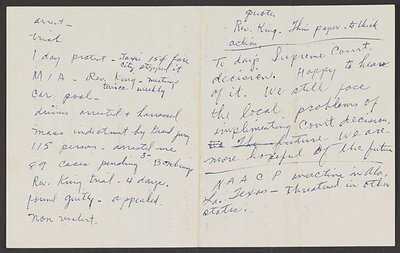
Rosa Parks. Notes regarding the U.S. Supreme Court’s decision in Browder v. Gayle, ca. November 13, 1956. Autograph notes. Rosa Parks Papers, Manuscript Division, Library of Congress
You can learn more about the boycott and Rosa Parks in this special exhibit from the Library of Congress.
Now:
Boycotts remain a popular strategy for activists trying to change the behavior or governments and private entities like corporations. Boycotts are even used internationally, including boycotts of the Olympics, to urge political change. The Target boycott discussed in the segment above is partly inspired by the Montgomery Bus Boycott, but boycotts can seek all kinds of change — including demands to keep things the way they are.
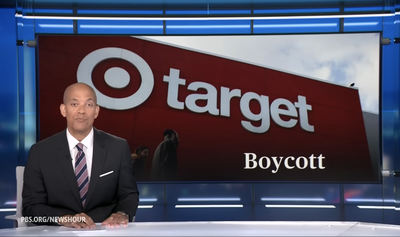
Credit: PBS News Hour screenshot
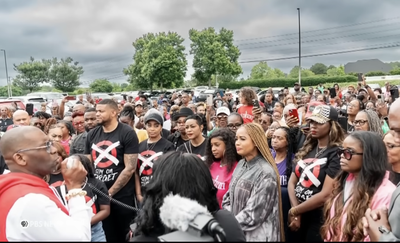
Credit: PBS News Hour screenshot
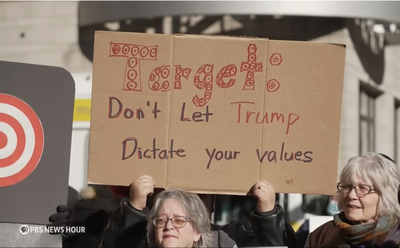
Credit: PBS News Hour screenshot
Discussion questions:
- Research some political boycotts that have taken place in the past two decades. Which ones seemed to help meet the goals of the protesters? What were some of the other impacts?
- What are some of the similarities and differences between the Target boycott, other boycotts you researched, and the Montgomery Bus Boycott?
Fill out this form to receive our weekly newsletter with timely lesson plans, a recap of our Daily News Lessons and community events.
